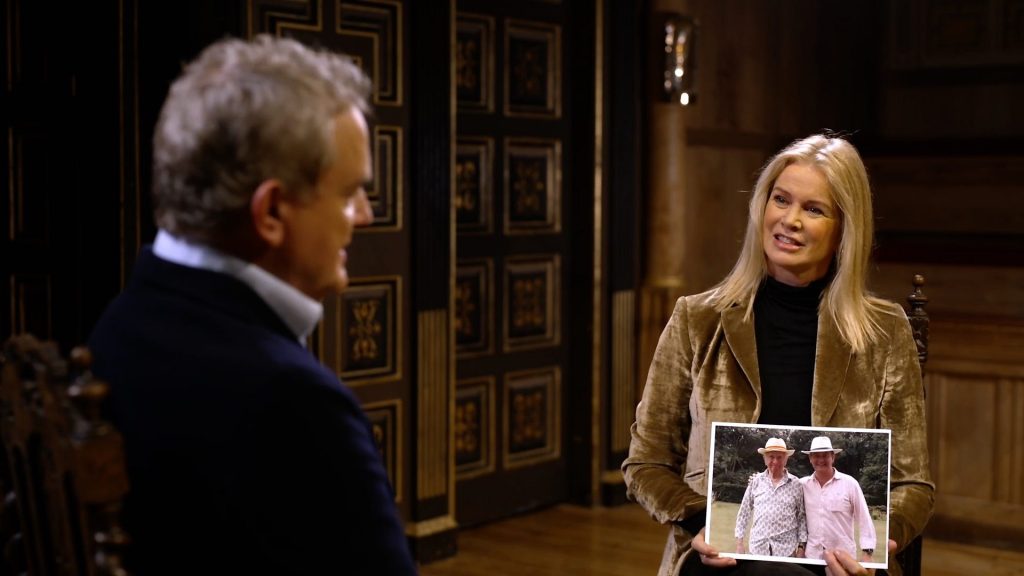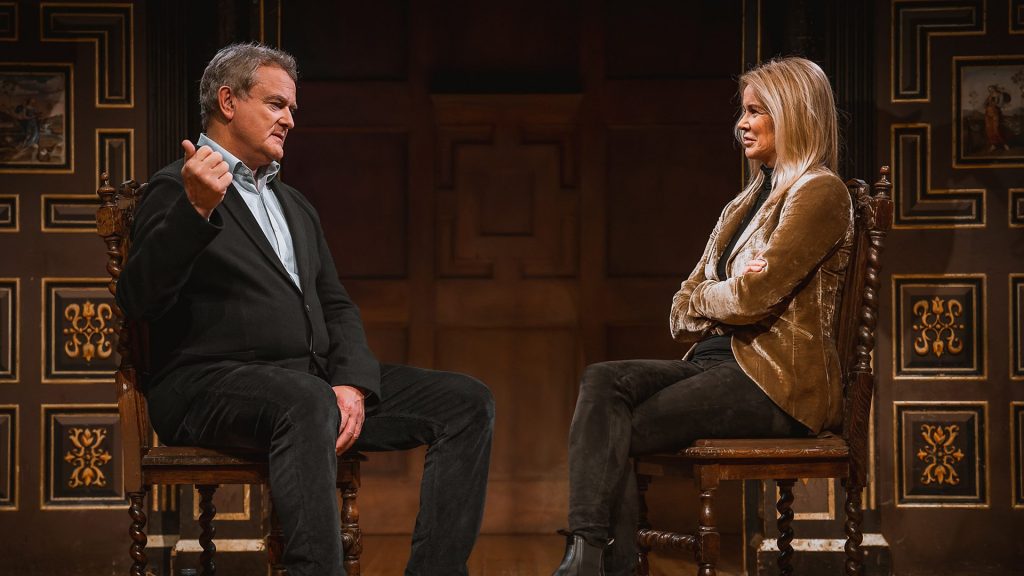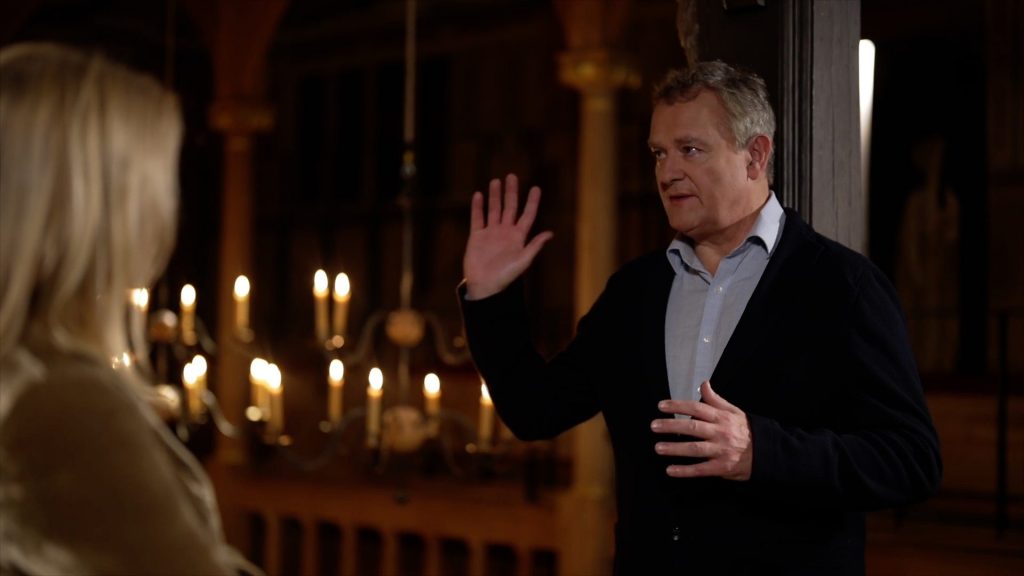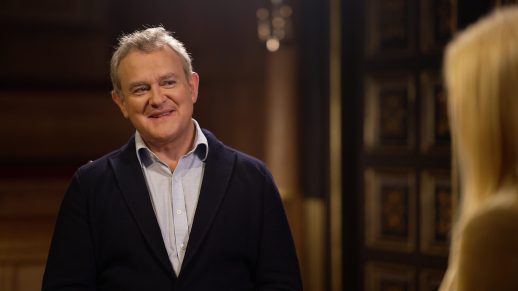Article by Jacqueline Schneider for the BBC
In an interview with the BBC, the Downton Abbey star emphasises the importance of stoking a love of culture from childhood, and how art “makes us human”, especially in the pandemic era.
Hugh Bonneville has dedicated his life to the arts. The British actor, known widely for his role in the BAFTA-winning historical drama series Downton Abbey, discovered his passion from an early age at cultural hubs and on Shakespearean stages. Now, he wants everyone to experience the same joy he has felt throughout his career.
Bonneville, 60, is the fifth guest on Influential, the unscripted interview show from BBC correspondent and author Katty Kay, which has also featured guests including Wendell Pierce, Ina Garten, Anthony Fauci and Ken Follett. At the Sam Wanamaker Playhouse in London, Bonneville shares the path that has enabled him to discover both his humanity and that of others.
The actor’s connection to art and culture began in early childhood, growing up in London as the youngest of three. “I did have to make my own entertainment, so the dressing-up box became my friend, and the world of the imagination,” he says. After his parents hosted a lodger who was an actor, Bonneville found himself “absolutely captivated” by the man’s onstage talent and presence at The Greenwich Theatre, where he performed in a play called Forget Me Not Lane by Peter Nichols.
“The next morning, I just stared at him at breakfast. I was completely mesmerised … He was a god,” Bonneville tells Kay. “He was God who ate an egg, and I looked at him a completely different way – that he and his colleagues had had this extraordinary impact on a shared experience in a room like this.”

For Bonneville, sharing that sense of awe has played a major role in his career and purpose.
One way he’s reached wide swaths of audiences across generations is through his role in the post-Edwardian historical drama Downton Abbey, which ran for six seasons on ITV in the UK and PBS in the US. Bonneville says the show tapped into the cultural zeitgeist, with his stories of the past and dreams of the future. “You could say it was about, for example: tension – not violence; romance – not sex. You could sit down with your granny and with a grandchild and watch it.”

In this way, he believes, art has a singular power to reach people – one that has never been so important, especially now, when many have become accustomed to experiencing media through screens.
“Since the pandemic, we all bought bigger TVs and movies, sit at home with our popcorn. We think, ‘why would we go out and share an experience?’,” he says. Still, he believes, “there is a hunger for the live experience” – one that needs to be cultivated and preserved. There’s nothing like quite the stage, he contends, but viewers can also find themselves moved through shared moments at a cinema.
“Please never stop going to movie theatres,” he says. This sentiment goes deeper than just on screen or stage – Bonneville says investing in youth is crucial to keeping the arts alive.

He knows from experience. Bonneville says his parents instilled the importance of the arts from childhood, making sure he was immersed in all kinds of culture from a young age, such as concerts, art and theatre. “There was a sort of background white noise of culture with a small ‘c’,” he says. “[My parents] weren’t highfalutin – we just went to every blooming country house and every museum and every art gallery … I grabbed it all.”
In his teens, he joined the National Youth Theatre, where he met children of different backgrounds from across the UK. It left an immense impression on him – a deep understanding of how critical the role of art is from day dot.
“That’s why I’m passionate now about things like the National Youth Theatre and other arts organisations that allow a bigger outreach for young people, because it’s what makes us human,” he says. “The notion of culture, in whatever form – to use the imagination to explore the imagination and the intellect to try to understand each other as human beings. God knows we need understanding. And not everyone has access to it. And I am passionate about enabling access.”









